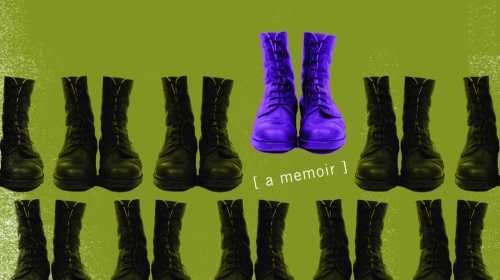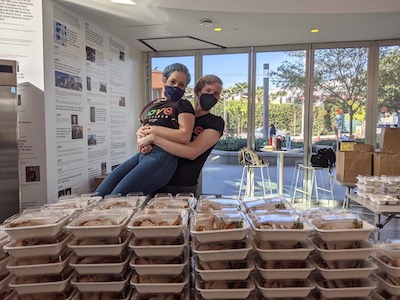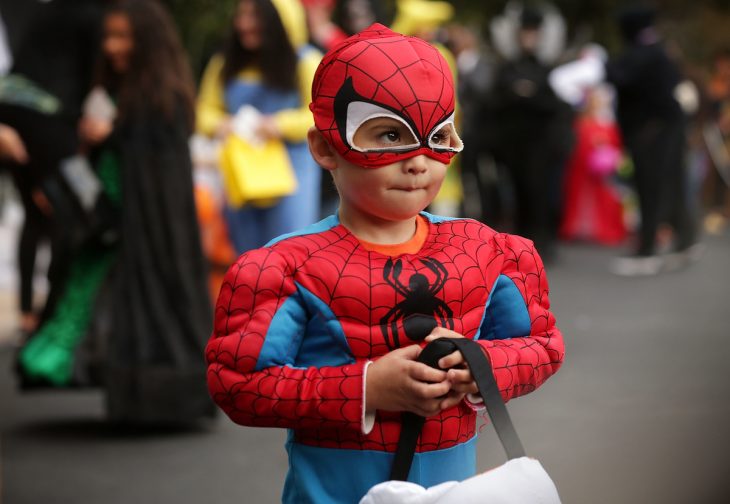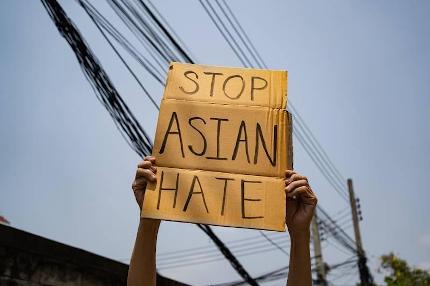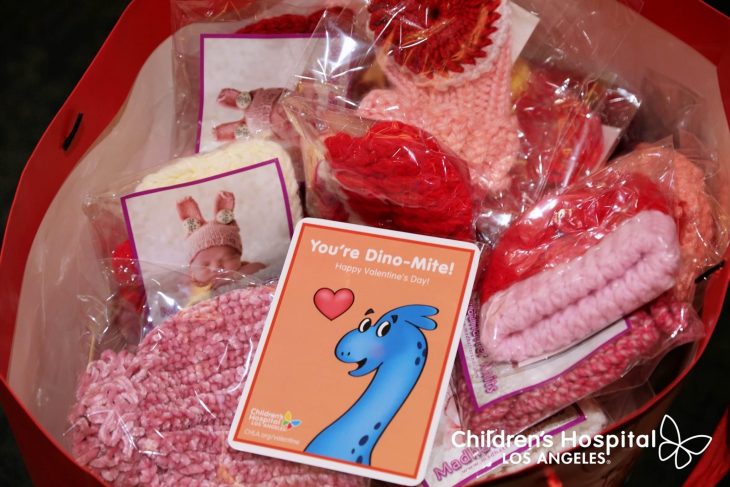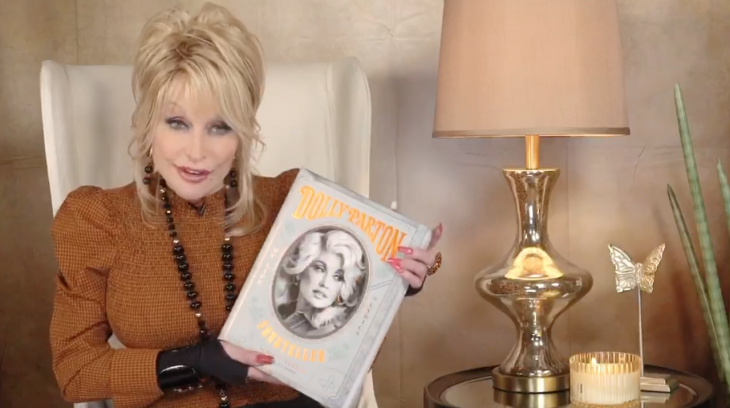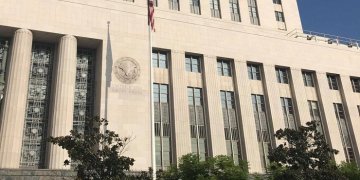As the year comes to a close, you begin to ponder whether you should choose a News Years resolution for 2020. Why what to pick? Reading everyday has been proven to improve both mental stimulation and memory. Plus, queer literature is kind of flourishing right now. The Lambda Literary Awards are annually selected published works celebrating or exploring LBTQ+ themes.
Check out the list of winners in each category for this year. Maybe some of them will find their way onto you reading list next year …
Bisexual Fiction
“Disoriental” by Negar Djavadi – Kimiâ Sadr fled Iran at the age of ten in the company of her mother and sisters to join her father in France. Now twenty-five and facing the future she has built for herself as well as the prospect of a new generation, Kimiâ is inundated by her own memories and the stories of her ancestors, which come to her in unstoppable, uncontainable waves. In the waiting room of a Parisian fertility clinic, generations of flamboyant Sadrs return to her, including her formidable great-grandfather Montazemolmolk, with his harem of fifty-two wives, and her parents, Darius and Sara, stalwart opponents of each regime that befalls them.
Bixsexual Non-Fiction
“Out of Step” by Anthony Moll – This book traces the development of the author through his military service, recounting how the army both breaks and builds relationships, and what it was like to explore his queer identity while also coming to terms with his role in the nation’s ugly foreign policy. From a punk, nerdy, left-leaning, poor boy in Nevada leaving home for the first time to an adult returning to civilian life and forced to address a world more complicated than he was raised to believe, Moll’s journey isn’t a classic flag-waving memoir or war story—it’s a tale of finding one’s identity in the face of war and changing ideals.
Bisexual Poetry
“We Play a Game” by Duy Doan – This striking debut reveals the wide resonance of the collection’s unassuming title, in poems that explore—now with abundant humor, now with a deeply felt reserve—the ambiguities and tensions that mark our effort to know our histories, our loved ones, and ourselves. These are poems that draw from Doan’s experience as a Vietnamese-American while at the same time making a case for—and masterfully playing with—the fluidity of identity, history, and language. Nothing is alien to these poems: the Saigon of a mother’s dirge, the footballer Zinedine Zidane, an owl that “talks to his other self in the well”—all have a place in Doan’s far-reaching and intimately human art.

Gay Fiction
“Johnny Appleseed” by Joshua Whitehead – Off the reserve and trying to find ways to live and love in the big city, Jonny becomes a cybersex worker who fetishizes himself in order to make a living. Self-ordained as an NDN glitter princess, Jonny has one week before he must return to the “rez”–and his former life–to attend the funeral of his stepfather. The seven days that follow are like a fevered dream: stories of love, trauma, sex, kinship, ambition, and the heartbreaking recollection of his beloved kokum (grandmother). Jonny’s life is a series of breakages, appendages, and linkages–and as he goes through the motions of preparing to return home, he learns how to put together the pieces of his life.
Gay Memoir/Biography
“No Ashes in the Fire: Coming of Age Black and Free in America” by Darnell .L. Moore – When Darnell Moore was fourteen, three boys from his neighborhood tried to set him on fire. They cornered him while he was walking home from school, harassed him because they thought he was gay, and poured a jug of gasoline on him. He escaped, but just barely. It wasn’t the last time he would face death.
Gay Mystery
“Late Fees” by Marshall Thornton – It’s Thanksgiving, 1992 and Noah Valentine is late picking his mother up from the airport. When he arrives he discovers that she’s made a friend on the flight whose also waiting for her son. When the woman’s son doesn’t show up, they eventually take her home for breakfast with neighbor’s Marc and Louis. Soon after, they learn that her son has overdosed—or has he? Noah and his motley crew investigate over the holiday weekend; which includes a fabulous dinner, a chat with a male stripper, a tiny little burglary and some help from Detective Tall, Dark, and Delicious.
Gay Poetry
“Indecency” by Justin Phillip Read – It is boldly and carefully executed and perfectly ragged. In these poems, Justin Phillip Reed experiments with language to explore inequity and injustice and to critique and lament the culture of white supremacy and the dominant social order. Political and personal, tender, daring, and insightful—the author unpacks his intimacies, weaponizing poetry to take on masculinity, sexuality, exploitation, and the prison industrial complex and unmask all the failures of the structures into which society sorts us.

Gay Romance
“Crashing Upwards” by S.C. Wynne – Harper Jones is a professional bike courier, and in his business if you don’t ride fast, you don’t make money. His apartment has mice, he’s barely able to scrape up the rent, but at least he’s living life on his terms and doesn’t depend on anyone.Sam Foster is the gay son of a wealthy conservative senator. He’s noticed Harper before when he’s dropped off packages at his dad’s company, but he’s never had the nerve to speak to his secret crush.When Sam accidentally hits Harper with his car, Harper’s bike is destroyed and he’s injured seriously enough that he won’t be delivering packages for a while. Sam decides Harper needs rescuing, and he moves in with Harper to take care of him. Unfortunately, Sam’s politician dad is convinced Harper’s a con-artist and he’ll do whatever it takes to get him away from his son.
Lesbian Fiction
“The Tiger Flu” by Larissa Lai – Kirilow is a doctor apprentice whose lover, Peristrophe, is a “starfish,” a woman who can regenerate her own limbs and organs, which she uses to help her clone sisters whose organs are failing. When a denizen from Salt Water City suffering from a mysterious flu comes into their midst, Peristrophe becomes infected and dies, prompting Kirilow to travel to the city, where the flu is now a pandemic, to find a new starfish who will help save her sisters. There, Kirilow meets Kora, a girl-woman desperate to save her family from the epidemic. Kora has everything Kirilow is looking for, except the will to abandon her own family. But before Kirilow can convince her, both are kidnapped by a mysterious group of men to serve as test subjects for a new technology that can cure the mind of the body.
Lesbian Memoir/Biography
“Chronology” by Zahra Patterson – Taking as its starting point an ultimately failed attempt to translate a Sesotho short story into English, CHRONOLOGY explores the spaces language occupies in relationships, colonial history, and our postcolonial past. It is a collage of images and documents, folding on words-that-follow-no-chronology, unveiling layers of meaning of queering love, friendship, death, and power. Traveling from Cape Town to the Schomburg Center in New York, Zahra Patterson’s CHRONOLOGY reveals and revels in fragments of the past-personal and the present-political.

Lesbian Mystery
“A Study in Honor” by Claire O’Dell – Set in a near future Washington, D.C., a clever, incisive, and fresh feminist twist on a classic literary icon—Sherlock Holmes—in which Dr. Janet Watson and covert agent Sara Holmes will use espionage, advanced technology, and the power of deduction to unmask a murderer targeting Civil War veterans.
Lesbian Poetry
“Each Tree Could Hold a Noose or a House” by Nina Puro – Puro questions global and personal history alike in a lithe, graceful dreamscape of a debut that addresses culpability, ignorance, hope, free will, intimacy, and more. “We are all part of a current, it is said, but perhaps it is dark. We become agents to projects we didn’t know existed,” Puro writes. The world described within is marked by legacies of trauma and violation on various scales, whether in regard to the effects of colonialism (“the Catholic church built around the holy Pueblo dirt”) or sexual violence (“was she a runaway, pregnant, kidnapped, hospitalized, a refugee, to return or not, partially or fully”). Stylistically, a stream of consciousness engages and retracts as Puro employs incisive wordplay, repetition, use of white space, and disjointed syntax that results in a sense of immediacy and unity. Meanwhile, a series of elegies displays Puro’s dark humor: “they’ve cordoned off/ our block with coffeeshops/ like they’re making a moat.” Throughout, Puro challenges readers to confront their own perceptions and discover what lies beneath: “This riot is not/ A fable or a metaphor. I am telling/ You the truth. I am telling/ You everything. I’m making/ A face under my face.” —Publishers Weekly

Lesbian Romance
“Beowulf for Cretins” by Ann McMann – A burned out English professor toiling away at a small college in Vermont’s Champlain Islands finds love and ensuing complications that very well may spoil her last shots at tenure and happiness.
Transgender Nonfiction
“Histories of the Transgender Child” by Julian Gill-Peterson – uncovers a previously unknown twentieth-century history when transgender children not only existed but preexisted the term transgender and its predecessors, playing a central role in the medicalization of trans people, and all sex and gender. Using a wealth of archival research from hospitals and clinics, Julian Gill-Peterson reconstructs the medicalization and racialization of children’s bodies.
Transgender Fiction
“Little Fish” by Casey Plett – It’s the dead of winter in Winnipeg and Wendy Reimer, a thirty-year-old trans woman, feels like her life is frozen in place. When her Oma passes away Wendy receives an unexpected phone call from a distant family friend with a startling secret: Wendy’s Opa (grandfather) — a devout Mennonite farmer — might have been transgender himself. At first she dismisses this revelation, but as Wendy’s life grows increasingly volatile, she finds herself aching for the lost pieces of her Opa’s truth. Can Wendy unravel the mystery of her grandfather’s world and reckon with the culture that both shaped and rejected her? She’s determined to try.
Transgender Poetry
“Lo Terciario/ The Tertiary” by Raquel Salas Rivera – This book offers a decolonial queer critique and reconsideration of Marx. The book’s titles come from Pedro Scaron’s El Capital, the 1976 translation of Karl Marx’s classic. Published by Siglo Veintiuno Editores, this translation was commonly used by the Puerto Rican left as part of political formation programs. This book places this text in relation to the Puerto Rican debt crisis, forcing readers to reconsider old questions when facing colonialism’s newest horrors.
LGBTQ Children’s/ Young Adult
“Hurricane Child” by Karen Callender – Being born during a hurricane is unlucky, and twelve–year–old Caroline has had her share of bad luck lately. She’s hated and bullied by everyone in her small school on St. Thomas of the US Virgin Islands, a spirit only she can see won’t stop following her, and –– worst of all –– Caroline’s mother left home one day and never came back.
But when a new student named Kalinda arrives, Caroline’s luck begins to turn around. Kalinda, a solemn girl from Barbados with a special smile for everyone, becomes Caroline’s first and only friend –– and the person for whom Caroline has begun to develop a crush.
LGBTQ Anthology
“As You Like It: Thee Gerald Kraak Anthology, V.II” by the Other Foundation (fiction category) –
“Not That Bad: Dispatches for Rape Culture” by Roxane Gay (nonfiction category) –
For a complete list of finalists and winners for the 31st Lambda Literary Awards, CLICK HERE.

